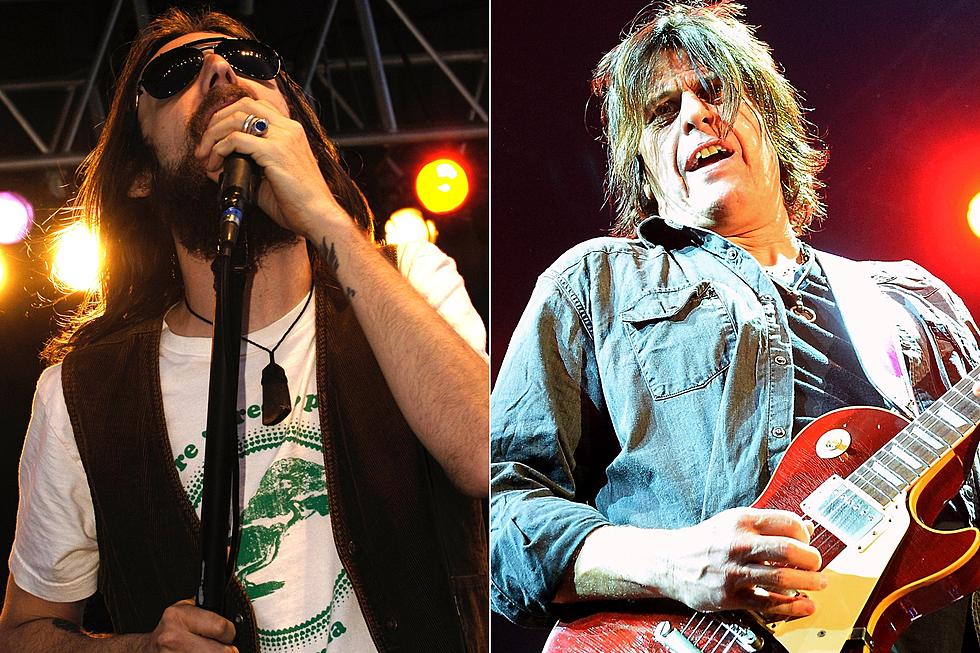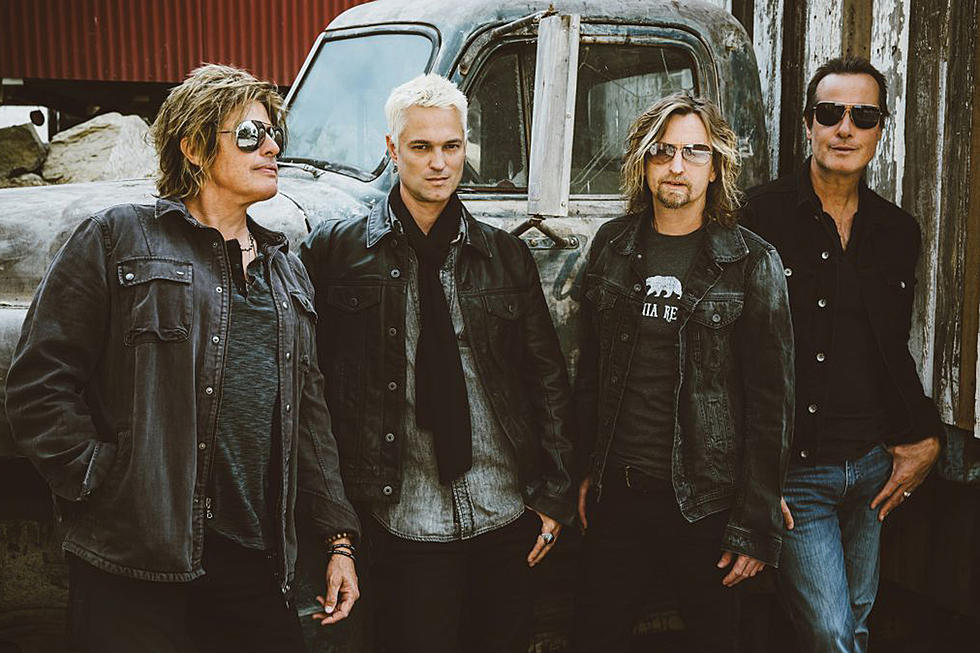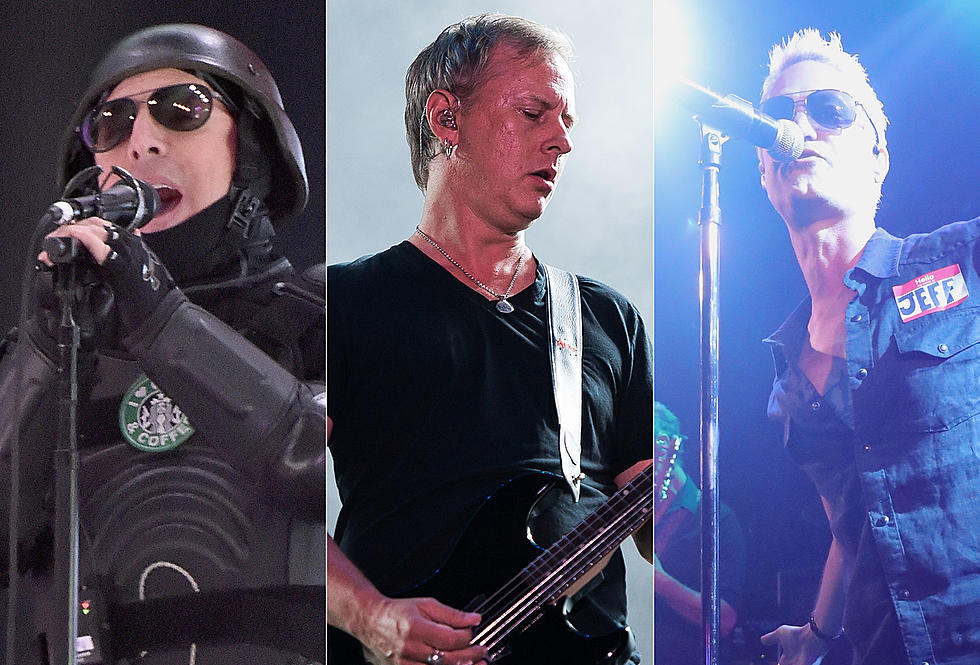
20 Years Ago: Stone Temple Pilots Release ‘Tiny Music… Songs From the Vatican Gift Shop’
The day before Scott Weiland was found dead of an overdose on his tour bus last December, the former Stone Temple Pilots frontman said in an interview that he considered the band's 1996 album, Tiny Music… Songs from the Vatican Gift Shop, “STP’s most creative album” and the record he’d want with him on a desert island. The album – born amid sheer turbulance and released 20 years ago this weekend (March 26) — is among the band’s crowning creative achievements.
That’s really saying something, considering Stone Temple Pilots' first two full-lengths (1992’s Core and 1994’s Purple) went multi-platinum and are considered landmarks of '90s alternative rock. While many critics at the time had previously dismissed the San Diego outfit as mere Seattle clones, Tiny Music... made it more difficult to make that claim. It actually seemed like STP had gone completely off the deep end.
In early 1995 and on the heels of the band recently scrapping roughly two weeks’ worth of recorded material for the follow-up to their crossover mega-hit, Purple, Weiland was arrested for cocaine and heroin possession and sentenced to one year of probation. Instead of focusing on the next album, Weiland shifted his attention to his side project, the Magnificent Bastards, as the other three members of the band (guitarist Dean DeLeo, bassist Robert DeLeo and drummer Eric Kretz) launched their own, called Talk Show. But after getting all that experimentation out of their collective system, Stone Temple Pilots reassembled that fall at Westerly Ranch in Santa Ynez, Calif. to resume recording.
They again enlisted Core and Purple producer Brendan O’Brien (Pearl Jam, Soundgarden), who reportedly assumed a hands-on role and contributed piano, tambourine, organ, clavinet and percussion on several tracks. Meanwhile, primary songwriter Robert DeLeo also played vibraphone, electric harpsichord and percussion. The curious name of the 12-song collection hinted to fans that this wouldn't be just another post-grunge album, and the jazzy, instrumental opening track "Press Play" made it abundantly clear. But the second song, "Pop's Love Suicide," is much more indicative of the glossy sound STP had begun to explore.
It seemed STP were going back in time and across the pond for inspiration on Tiny Music..., fusing Beatles-esque ’60s psychedelia with ’80s shoegaze and British jangle pop, with a healthy splash of glam-rock sleaze. Then there are moments that are just totally out there, like the breezy “And So I Know” (which could’ve been on a Jellyfish album) or the sublime instrumental “Daisy.” Musically, the band showcase their chops throughout — especially Dean DeLeo, who full-on rips in places — and it often sounds incredibly intimate, as if they’d set up amps and a drum kit right in your living room.
Even more impressive is that despite its experimental leaning, the album still boasted multiple hit singles. “Big Bang Baby,” “Lady Picture Show” and “Trippin’ on a Hole in a Paper Heart,” all reached No. 1 on the Billboard Mainstream Rock Tracks chart, and all are widely considered STP essentials. “Lady Picture Show,” which heavily evokes the Fab Four, is arguably one of the band's strongest tracks ever.
The album was an all-too-rare convergence of art and pop in a genre that had largely gone stale, and critics largely praised the album. Rolling Stone declared it "STP’s best record to date" thanks to the “clattering, upbeat character of the music” – especially given Weiland’s recent troubles. Others, however, just didn’t get it. Entertainment Weekly thought “none of it... has a distinct personality.” But we respectfully disagree.
Tiny Music... got off to a decent start, debuting at No. 4 on the Billboard 200 and moving 162,500 copies its first week. Eventually, sales pushed past the double-platinum mark; still, it was noticeably less embraced than STP's first two albums. Undoubtedly, part of that was due to confusion and disinterest by grunge stalwarts who didn’t follow the style change.
Weiland’s downward spiral, however, continued to hamper momentum. STP were forced to cancel most of their tour dates in support of Tiny Music as Weiland’s drug addiction raged out of control. This included bailing on a high-profile slot supporting one of their biggest influences, KISS, during the classic hard rockers' reunion tour. Inevitably, the lack of exposure hampered record sales and Tiny Music simply never got as much attention as it deserved.
After the cancellations, the band went on hiatus. The DeLeo brothers and Kretz teamed with Ten Inch Men singer Dave Coutts and released Talk Show’s self-titled album in 1997, while Weiland worked on his own material, leading to his first solo album, 1998’s 12 Bar Blues. Neither of those projects saw much success though, and later in 1998, STP reunited to record 1999's No. 4. The platinum success of that album only underscored that despite Weiland’s baggage, there was a special magic when the foursome created together.
That was a huge part of what makes Tiny Music so special, even two decades later: It’s a lightning-flash snapshot of inspired creativity preserved forever. In some respects, the album could serve as Weiland’s true swan song, and judging by that fateful interview just before his death, he realized it.
Worst to First: Every Stone Temple Pilots Album Ranked
More From Diffuser.fm









